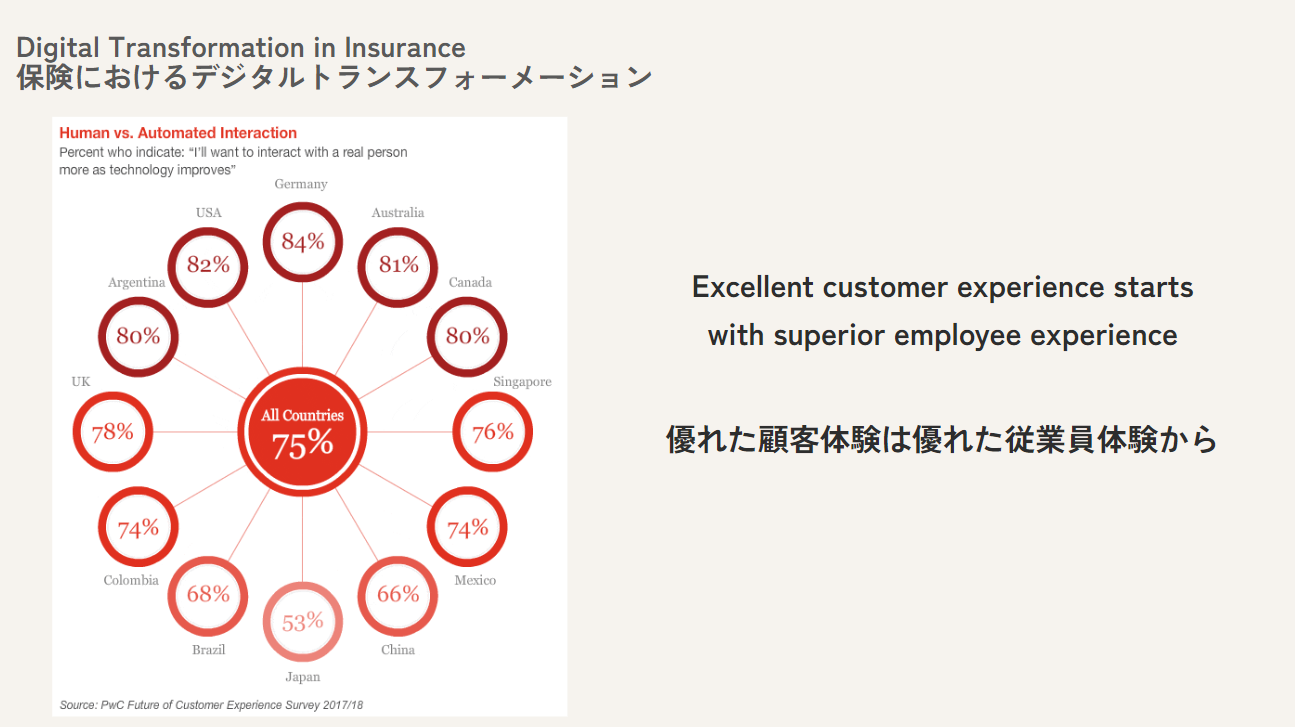Introduction
We are in an era where digital transformation is no longer regarded as a novelty but a necessity across all business landscapes.
Industries are progressively embracing digital channels, tools, and technologies to reinvent operating models, catalyzing rapid growth and innovation.
One such industry witnessing a paradigm shift owing to digitalization, namely, the insurance sector, is the focus of this blog post.
Insurers across the globe are no longer relying solely on traditional methods. Instead, they are adopting digital technologies to reform operational processes, improve customer service, and enhance risk assessment.
From leveraging artificial intelligence for claims processing to utilizing big data analysis for accurate underwriting and pricing, the insurance sector is being revolutionized from the ground up.
In this comprehensive blog post, we will delve deep into the world of digital transformation in the insurance sector, uncovering its potential impact on insurance providers, policyholders, and the overarching industry outlook.
Exploring Digital Transformation in Insurance Companies
Digital Transformation in the insurance industry refers to the use of digital technology to innovate and streamline business processes, enhance customer experiences, and create new insurance business models.
This revolution involves the integration of various technologies, such as Artificial Intelligence (AI), Big Data, Blockchain, and Cloud Computing, amongst others, into all areas of the insurance business.
This technological shift is reshaping the industry, disrupting traditional practices, and presenting unprecedented opportunities for insurance companies.
Customer expectations are evolving rapidly, with a growing demand for personalized services, quick response times, and seamless digital experiences.
Implementing digital transformation allows insurance companies to meet these expectations and stay competitive in this ever-changing digital era.
According to Accenture, 68% of insurance companies recognize digital transformation as a top priority.
Moreover, Accenture’s Technology Vision survey found that 96% of insurers already feel the impact of the technology-driven transformation.
These statistics underline the importance and urgency of embracing digital transformation in the insurance sector, highlighting its potential to reshape business models and redefine the future of the insurance industry.
A Digital Awakening: Key Drivers Behind the Shift
Several factors are propelling the insurance industry to adopt digital transformation initiatives:
Growing Customer Expectations
The digital boom has led to customers demanding seamless experiences from businesses across various sectors, and the insurance landscape is no exception.
Policyholders now expect personalized products, instant quotes, smooth claims management, and prompt responses to their queries.
Emerging Technologies
The rapid advancement of technology, including artificial intelligence (AI), machine learning (ML), the Internet of Things (IoT), and big data analytics, has unlocked new opportunities for the insurance sector to innovate and optimize processes.
Regulatory Pressures
Insurance regulators across the globe have increasingly emphasized the need for transparency, better customer engagement, and compliance with data protection and privacy laws.
Insurers have started turning to digital solutions that can address these regulatory requirements effectively.
Market Competitiveness
Insurtech companies and innovative insurances startups have disrupted the market with digital-first products and services.
To stay competitive, traditional insurers are adopting digital transformation strategies to enhance their operational efficiency and agility.
Key Aspects of Digital Transformation in Insurance
Several critical areas within the insurance sector are being transformed as businesses undergo digital journeys:
1. Product Development & Personalization
Traditional insurance products are often rigid, with limited customization capabilities. However, digital transformation is enabling insurers to offer personalized and tailored policies based on individual customers' needs and risk profiles.
By utilizing big data analytics, insurers can analyze vast amounts of customer data to identify patterns, preferences, and specialized requirements, resulting in the development of tailor-made products.
Furthermore, incorporating technology such as telematics and IoT devices allows insurers to accurately assess individual risk profiles, leading to personalized pricing and more accurate underwriting.
For example, usage-based car insurance policies use telematics data to determine premiums based on individual driving habits.
2. Sales and Distribution Channels
The digital age has spurred a shift away from traditional sales channels, such as brokers and agents, toward more convenient, online platforms.
Insurance providers are increasingly adopting multi-channel sales strategies, integrating digital touchpoints like web portals, mobile apps, and social media platforms to engage with customers, provide quotes, and sell policies.
Digital channels enable insurers to reach broader audiences, reduce customer acquisition costs, and improve overall customer experiences.
Additionally, incorporating AI-driven chatbots and virtual assistants enables insurance providers to offer instant and round-the-clock support to potential and existing clients.
3. Claims Management
Efficient claims management is integral to maintaining customer satisfaction levels. Digital transformation is revolutionizing the claims process by introducing automation, AI, and data analytics, streamlining the entire workflow.
By promptly identifying fraudulent activities, speeding up claims settlements, and providing real-time communication channels, digital technologies help insurers offer a superior claims experience.
For instance, AI-powered claims management solutions can quickly assess claim photos, validate submitted documentation, and estimate repair costs, significantly reducing settlement timelines.
4. Risk Management and Fraud Detection
The adoption of advanced data analytics and machine learning techniques has enabled insurers to better predict risks and detect fraudulent activity.
By aggregating and analyzing vast data resources, insurers can identify patterns, anomalies, and suspicious activities more effectively.
Machine learning algorithms can detect potential fraud in real-time, enabling insurance providers to proactive steps to mitigate risks and reduce financial losses.
Additionally, IoT devices and telematics systems assist insurers in monitoring insured assets and mitigating potential risks by providing real-time data and alerts.
5. Customer Engagement and Loyalty
A significant aspect of digital transformation revolves around enhancing customer engagement and creating lasting relationships.
By leveraging digital channels such as mobile apps, web portals, and social media, insurers can interact with customers continuously and meaningfully.
Insurers can offer value-added services, such as personalized advice, risk management tools, and wellness programs, to boost customer loyalty and increase long-term retention.
Moreover, data analytics and AI can help insurance providers identify upselling and cross-selling opportunities by understanding individual customers' needs and preferences.
Overcoming Challenges in the Digital Transformation Journey
Despite the numerous benefits, the digital transformation journey is not without challenges for the insurance industry. Insurers must overcome several obstacles to achieve success:
- Legacy Systems and Infrastructure: Modernizing outdated systems and integrating them with emerging technologies can be a complex and time-consuming endeavor. Insurers need to consider long-term strategies and incremental upgrades to transition away from legacy systems successfully.
- Cybersecurity and Data Privacy: The adoption of digital technologies and the management of vast amounts of sensitive data make insurers vulnerable to cyber threats. Strengthening cybersecurity measures, encrypting customer data, and adhering to regulatory compliance are paramount to mitigate risks.
- Skill Gaps: The digital transformation process demands specific technical expertise. Insurers must invest in employee training, development, and talent acquisition to bridge the skill gaps and effectively implement innovative technologies.
- Organizational Change Management: The insurance sector has mostly relied on traditional practices. Embracing a digital mindset requires a cultural shift, adapting to new business processes, and effectively managing change.
Implementing Digital Transformation in Insurance Companies
Digital transformation can redefine the insurance landscape by enabling companies to offer better customer experiences, improving efficiency, and fostering innovation.
The process involves adopting innovative technologies such as AI, big data, cloud computing, and blockchain.
Here's a step-wise guide on how insurance companies can embark on a successful digital transformation journey.
#1 Understanding the Customers
The customer should be at the heart of any digital transformation. Understanding customer needs, preferences, and behaviors can help insurance companies develop relevant digital initiatives.
According to a PwC survey, 50% of consumers expect insurance companies to offer digital services.
#2 Developing a Digital Strategy
An effective digital strategy should focus on transforming processes, engaging customers, optimizing operations, empowering employees, and developing new business models.
Companies should prioritize initiatives that can create value, emphasizing quick wins to secure buy-in from all stakeholders.
#3 Leveraging Technology
Insurance companies should explore a range of technologies. AI can automate routine tasks and provide personalized customer interactions.
Big data analytics can offer insights into customer behavior and risks.
Blockchain can streamline claim processing, and cloud technologies can enhance scalability, flexibility, and cost efficiency.
#4 Transforming the Organization Culture
Beyond technology, digital transformation necessitates a cultural shift. Companies should foster a digital culture, encouraging innovation, agility, and continuous learning.
An Insurance Journal report states that 96% of insurance professionals agree that company culture significantly impacts digital transformation progress.
#5 Collaborating with Fintechs
Partnerships with fintech firms can expedite the digital transformation process.
Fintechs offer innovative solutions that can enhance customer experience, streamline processes, and provide valuable insights.
Collaboration can enable insurance companies to leverage the speed, agility, and innovation that fintechs offer.
#6 Reinventing the Customer Experience
Companies should leverage digital technologies to provide seamless, personalized, and omnichannel customer experiences.
This can include digital onboarding, personalized offerings, real-time claim processing, and 24/7 customer service.

The Role of Insurtech in Accelerating Digital Transformation
Insurtech refers to the creative combination of technology and insurance, characterized by innovative startups offering disruptive products and services.
Insurtech companies have set the pace for digital transformation in the sector, forcing traditional insurers to reevaluate their strategies and adopt digital-first ideologies.
Collaboration between traditional insurance providers and Insurtech firms has led to substantial growth across the industry.
By adopting Insurtech solutions, insurance providers can harness advanced technologies, streamline their processes, improve the customer experience, and bolster their competitiveness in a rapidly changing market landscape.
Conclusion
Digital transformation has become an essential force driving change within the insurance industry, redefining operational processes, customer interactions, and market dynamics.
Insurers, now more than ever, must leverage advances in technology and data analytics to stay competitive and meet the evolving demands of the modern policyholder.
By embracing the power of digital transformation, insurance providers can revolutionize their offerings, streamline internal processes, minimize risks, and crucially, elevate the customer experience.
As the sector undergoes a digital renaissance, insurers willing to adapt and innovate will be best positioned to thrive in the ever-growing landscape of insurance.








